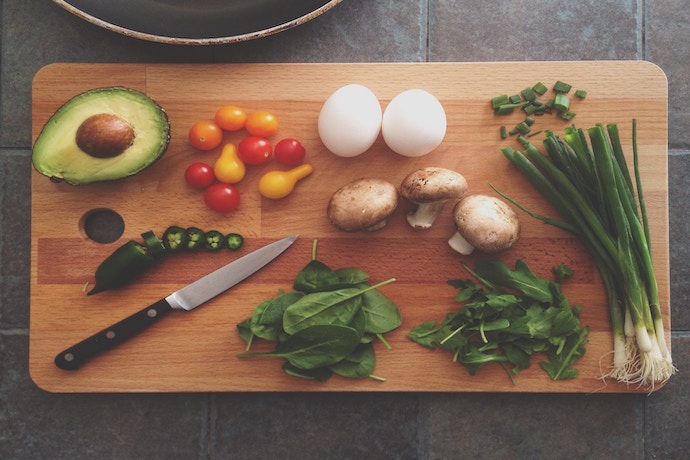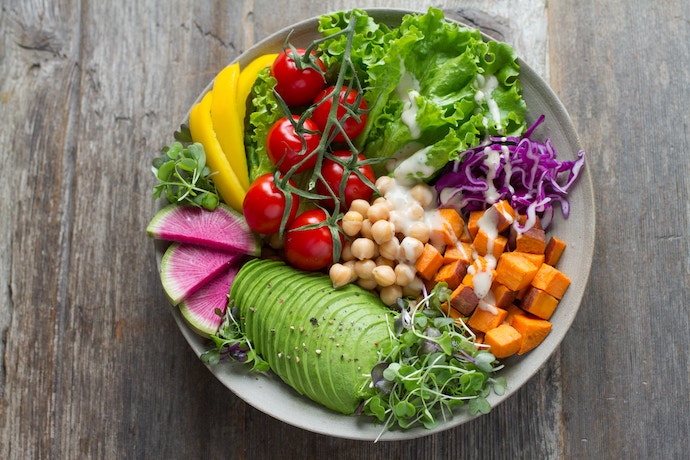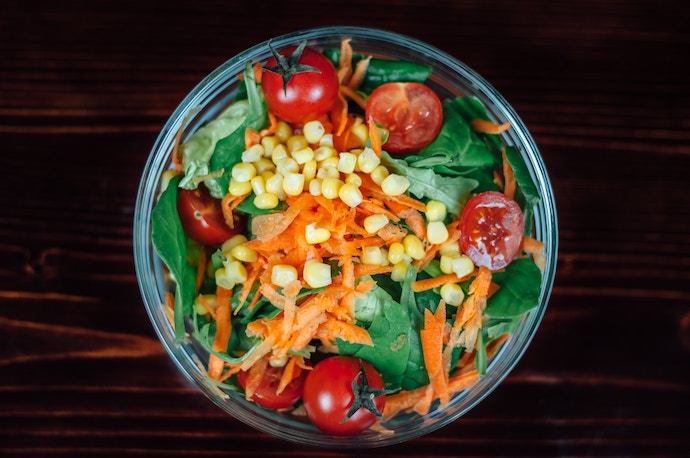Why Healthy Family Dinners are Important
A healthy family dinner is the foundation for a strong and happy family. By incorporating nutritious ingredients like chicken, barley, and vegetables into your meals, you can ensure that your loved ones are getting the essential vitamins and minerals they need to thrive. Not only does this promote good physical health, but it also sets a positive example for children and teaches them about the importance of making wholesome food choices.
Planning ahead is crucial when it comes to creating healthy family dinners. By taking the time to plan out your meals for the week, you can avoid last-minute unhealthy takeout options or resorting to quick-fix processed foods. Instead, you can bake delicious homemade dishes like Cajun chicken with roasted vegetables or hearty chilli with beans and whole-grain barley. This not only saves you time but also allows you to control the ingredients used in your meals.
Remember that healthy family dinners aren't just about fuelling our bodies; they're about nourishing our relationships as well. Sitting down together at mealtime provides an opportunity for bonding and communication while creating lifelong memories around shared experiences. So let's prioritise these important moments by planning and preparing nutritious meals that will benefit both our bodies and our connections with one another - because nothing beats a satisfying, home-cooked meal enjoyed with loved ones!

Photo by Katie Smith on Unsplash
Benefits of Healthy Family Dinners
Improved nutrition and overall health are just some of the many benefits that come with having healthy family dinners. By cooking nutritious meals at home, you have control over what ingredients go into your dishes, allowing you to make healthier choices. This can lead to increased energy levels, improved digestion, and a stronger immune system for everyone in the family.
Cooking nutritious meals at home allows you to make healthier choices, leading to improved nutrition, increased energy levels, better digestion, and a stronger immune system for the whole family. Sharing regular family dinners promotes closer relationships and creates lasting memories through meaningful conversations and quality time spent together. By setting a positive example with healthy eating habits, parents can lay the foundation for lifelong benefits in their children's well-being. Healthy family dinners nourish both our bodies and our bonds as we share food with loved ones.
In addition to better nutrition, sharing regular family dinners promotes a stronger bond and quality time spent together. Gathering around the table allows for meaningful conversations and connection between family members. Whether it's trying out new recipes or simply enjoying each other's company while enjoying a delicious homemade meal, these moments create lasting memories and foster closer relationships.
By planning and preparing healthy family dinners on a regular basis, you're also setting a positive example for your children's eating habits. Children learn by observing their parents' behaviours, so when they see their parents making conscious choices about what they eat, it encourages them to do the same. This lays the foundation for lifelong healthy eating habits that will benefit them well into adulthood.
Remember: Healthy family dinners not only nourish our bodies but also provide an opportunity to strengthen our bonds as we share food together with loved ones.
The Role of Planning in Healthy Family Dinners
1. Planning your family dinners not only ensures that you serve balanced meals with all the essential nutrients, but it also promotes a healthier lifestyle for your loved ones. By incorporating a variety of food groups and ingredients such as chicken, barley, and vegetables into your meal plans, you can create delicious dishes that provide the necessary vitamins and minerals for optimal health.
2. Taking the time to plan ahead can significantly minimise stress and save precious time during meal preparation. From deciding on recipes to creating shopping lists, having a well-thought-out plan allows you to streamline your cooking process and avoid last-minute scrambles. This means more quality time spent with your family around the dinner table instead of rushing through chaotic preparations.
3. Planning healthy family dinners doesn't have to break the bank; in fact, it can be budget-friendly if approached strategically. With careful grocery shopping techniques like searching for sales or buying in bulk when possible, you can optimise savings without sacrificing nutritional value. So forget about expensive takeout or processed convenience foods – planning ahead will help you stick to both your health goals and budget aspirations!

Photo by National Cancer Institute on Unsplash
Tips for Planning Healthy Family Dinners
Involve your family in meal planning to foster healthy eating habits and create a sense of ownership. Encourage everyone to share their favourite recipes or ingredients, and come up with new ideas together.
Create a weekly meal schedule to save time and ensure balanced meals throughout the week. Include a variety of proteins, whole grains, fruits, and vegetables to provide essential nutrients for your family's well-being.
1. Involve Your Family in Meal Planning
Get the whole family involved by sitting down together to plan out meals for the week. Ask each family member for their input and preferences, making sure everyone's tastes are taken into consideration.
2. Create a Weekly Meal Schedule: Once you have gathered everyone's ideas, create a schedule for the week that includes a variety of healthy and balanced meals. This will not only help you stay organized but also ensure that your family is getting all the nutrients they need throughout the week.
2. Create a Weekly Meal Schedule
Creating a weekly meal schedule is an effective way to stay organised and ensure that your family enjoys healthy dinners throughout the week. Start by brainstorming a variety of nutritious recipes that your family loves, then assign each recipe to a specific day of the week. Consider incorporating themes like Meatless Mondays or Taco Tuesdays to add fun and excitement to mealtime.
Once you have your meal schedule in place, it's important to stick with it as much as possible. This will help streamline grocery shopping and save you time during busy weekdays. Additionally, involving your family in the decision-making process can increase their enthusiasm for trying new dishes and encourage them to develop healthy eating habits. With a well-planned weekly meal schedule, you'll be on track toward providing nourishing meals for your loved ones every day of the week.
3. Make a Shopping List
3. Make a Shopping List
- Write down all the ingredients you need for your weekly meals.
- Include plenty of fruits, vegetables, lean proteins, and whole grains.
- Don't forget pantry staples like olive oil, spices, and condiments.
- Stick to your list while shopping to avoid impulse purchases.
Preparing healthy family dinners starts with making a well-planned shopping list. By including all the necessary ingredients for nutritious meals and sticking to it at the store, you can ensure that your family eats well-balanced and delicious meals throughout the week. Remember to prioritise fresh produce, lean proteins, and whole grains for optimal health benefits.

Photo by Anna Pelzer on Unsplash
4. Prep Ahead of Time
Prep Ahead of Time:
- Wash and chop vegetables in advance to save time during meal preparation.
- Cook large batches of grains or proteins that can be used for multiple meals throughout the week.
- Pre-measure ingredients for recipes and store them in labeled containers.
Planning ahead is essential when it comes to preparing healthy family dinners. By washing and chopping vegetables in advance, you'll have them ready to go when it's time to cook. Cooking large batches of grains or proteins allows you to easily incorporate them into different meals throughout the week. Additionally, pre-measuring ingredients saves time and ensures that everything is easily accessible when you need it. With these prep-ahead tips, cooking nutritious dinners will become a breeze!
Ideas for Healthy Family Dinners
1. One-Pot Meals
When time is limited but hunger is not, one-pot meals are your saving grace. These versatile dishes allow you to throw all your ingredients into a single pot and let them simmer away while you tend to other tasks or simply kick back and relax. From hearty stews to flavourful pasta dishes, these fuss-free meals provide a wholesome and nutritious option for busy weeknights.

Photo by Becca Tapert on Unsplash
2. Sheet Pan Dinners
Simplify your dinner routine with sheet pan dinners that require minimal prep and cleanup. By arranging a variety of proteins, vegetables, and seasonings on a single baking sheet, you can create deliciously roasted meals that satisfy the whole family's cravings in no time at all. Plus, the combination of flavours that meld together in the oven will have everyone coming back for seconds (and possibly thirds).
- Time-saving: Sheet pan dinners are a quick and convenient way to prepare a healthy family dinner, as everything cooks together on one pan in the oven.
- Versatile options: With sheet pan dinners, you can mix and match various ingredients to suit your family's preferences and dietary needs.
So whether you're craving roasted vegetables with chicken or a mouthwatering salmon with potatoes, sheet pan dinners have got you covered!
3. Build-Your-Own Tacos or Burritos
Get creative with build-your-own tacos or burritos, a fun and customisable dinner option. Lay out a variety of fillings like seasoned ground turkey, black beans, sautéed peppers and onions, shredded lettuce, diced tomatoes, guacamole, and low-fat sour cream. Let each family member choose their favourite ingredients to build their own delicious creation.
Encourage your kids to get involved by setting up a taco bar where they can assemble their own tacos or burritos. This interactive meal not only allows everyone to personalise their dinner but also promotes healthy eating habits as they can load up on nutritious toppings like fresh veggies and lean protein while controlling portion sizes. With endless combinations to explore, build-your-own tacos or burritos are sure to be a hit at your next family dinner!

Photo by Clem Onojeghuo on Unsplash
4. Stir-Fry Nights
Stir-fry nights are a delicious and healthy way to mix up your family dinners. Quick and easy to prepare, stir-fries are packed with fresh vegetables and protein for a well-rounded meal. Here's why you should consider adding stir-fry nights to your weekly menu:
- Versatile: You can customise your stir-fries with different veggies, meats, and sauces.
- Time-saving: Stir-frying takes just minutes, making it perfect for busy weeknights.
- Nutrient-rich: With an abundance of colourful vegetables, stir-fries offer a wide range of vitamins and minerals.
- Budget-friendly: Using affordable ingredients like rice or noodles as the base keeps costs down.
So gather your family around the wok for some flavourful stir-fry nights that everyone will love!
5. Homemade Pizza
One quick and easy way to have a healthy family dinner is by making homemade pizza. Instead of ordering takeout, gather your family in the kitchen and get creative with toppings. Use whole wheat crust for added nutrients and fiber, then load up on veggies like bell peppers, mushrooms, and spinach. Top it off with some lean protein such as grilled chicken or turkey sausage for a balanced meal that everyone will love.
Making homemade pizza is also a fun activity to get the whole family involved in meal prep. Let each person choose their favourite toppings and help assemble their own personal-sized pizzas. It's a great opportunity to teach kids about making healthier choices while still enjoying their favourite foods. Plus, when you make it at home, you can control the amount of cheese and oil used, making it an even healthier option than delivery or frozen pizzas. So put on some music, roll out the dough, and enjoy a delicious homemade pizza night together!

Photo by Jimmy Dean on Unsplash
FAQ: Fuelling Your Family: How to Plan and Prepare Healthy Dinners
While there are no hard and fast rules, certain foods are best avoided to ensure that your family's meals are as nutritious as they are delicious. In this blog post, we'll discuss some common culprits that you might want to skip when preparing a wholesome family dinner.
- Processed Meats: Processed meats, such as sausages, hot dogs, and deli meats, are often high in sodium, unhealthy fats, and preservatives. These products have been linked to an increased risk of heart disease and certain types of cancer. Instead, opt for lean cuts of fresh meat or explore plant-based protein alternatives like legumes, tofu, or tempeh.
- Sugary Beverages: Sugary drinks like soda, fruit juices, and energy drinks may be tempting, but they provide little to no nutritional value and are often packed with added sugars. These empty calories can contribute to weight gain and increase the risk of developing chronic diseases like diabetes. Encourage your family to hydrate with water, infused water, herbal teas, or homemade fruit smoothies instead.
- Refined Grains: Refined grains, such as white rice, white bread, and pasta made from refined flour, have gone through extensive processing that strips away most of their nutrients and fiber. These refined grains are quickly digested and can cause blood sugar spikes, leaving you hungry and unsatisfied shortly after eating. Instead, choose whole grains like brown rice, whole wheat bread, and whole wheat pasta, which are higher in fibre and packed with essential nutrients.
- Artificial Trans Fats: Artificial trans fats are created through a process called hydrogenation, which turns liquid oils into solid fats. These fats are commonly found in fried and processed foods, such as French fries, donuts, and packaged snacks. Artificial trans fats have been linked to an increased risk of heart disease, inflammation, and other health issues. Be sure to read labels carefully and avoid products that contain partially hydrogenated oils.
- Excessive Added Sugars: Foods with excessive added sugars, such as sugary cereals, sweetened yogurts, and desserts, can contribute to weight gain and increase the risk of developing chronic diseases. While a sweet treat every now and then is perfectly fine, it's best to limit the consumption of these sugary foods on a regular basis. Opt for naturally sweetened options like fresh fruits or homemade desserts using natural sweeteners like honey or maple syrup.
When it comes to preparing a healthy family dinner, it's essential to ensure that you're not just focusing on the main course, but also including nutritious side dishes. These side dishes not only add variety to your meal but also provide essential nutrients that are beneficial for the whole family. Here are some delicious and nutritious side dishes that you can easily incorporate into your family dinner:
- Roasted vegetables: Roasting vegetables brings out their natural sweetness and enhances their flavours. You can roast a variety of vegetables like carrots, broccoli, Brussels sprouts, and sweet potatoes. Drizzle them with a little olive oil, sprinkle some herbs and spices, and pop them in the oven until they become tender and slightly caramelised.
- Quinoa salad: Quinoa is a nutrient-dense grain that is packed with protein, fibre, and various vitamins and minerals. Prepare a refreshing quinoa salad by combining cooked quinoa with colourful vegetables like bell peppers, cucumbers, cherry tomatoes, and fresh herbs. Toss it with a light vinaigrette made from olive oil, lemon juice, and a touch of honey.
- Steamed greens: Dark leafy greens such as spinach, kale, and Swiss chard are powerhouses of nutrition. Steaming them helps retain their vibrant colour and preserves their nutrients. Simply steam the greens until they are tender and bright green. You can add a squeeze of lemon juice or a sprinkle of garlic powder for some extra flavour.
- Baked sweet potato fries: Swap out regular fries for a healthier alternative by making baked sweet potato fries. Sweet potatoes are rich in fibre, vitamins, and minerals, making them a nutritious choice. Cut the sweet potatoes into thin strips, toss them with a little olive oil and your favourite seasonings, and bake them in the oven until they're crispy and golden brown.
- Quinoa stuffed bell peppers: Another way to incorporate quinoa into your family dinner is by making quinoa stuffed bell peppers. Cook the quinoa and mix it with sautéed onions, garlic, and your choice of vegetables. Stuff the mixture into halved bell peppers, sprinkle some shredded cheese on top, and bake them until the peppers are tender and the cheese is melted.
- Cucumber and tomato salad: A simple yet refreshing side dish, cucumber and tomato salad is a great way to add some crunch and freshness to your meal. Chop cucumbers and tomatoes into bite-sized pieces and toss them with a little olive oil, vinegar, and your choice of herbs. You can also add some feta cheese or olives for extra flavour.
- Whole grain garlic bread: Instead of regular white bread, opt for whole grain bread when making garlic bread. Whole grain bread is higher in fibre and nutrients, making it a healthier choice. Spread some garlic butter on the bread slices, sprinkle some herbs and grated cheese, and toast them in the oven until they're golden and crispy.
- Roasted chickpeas: Roasted chickpeas are a delicious and nutritious snack that the whole family will love. Simply toss drained and rinsed chickpeas with olive oil, salt, and your choice of spices like paprika, cumin, or garlic powder. Spread them out on a baking sheet and roast them in the oven until they're crispy and golden brown. You can also try different flavour variations like honey cinnamon or spicy buffalo for a fun twist.
- Veggie stir-fry: Stir-fries are a quick and easy way to incorporate a variety of vegetables into your family's meals. Heat some oil in a pan and add your choice of veggies like broccoli, bell peppers, carrots, and snap peas. Cook them until they're tender-crisp and then add a sauce made from soy sauce, ginger, garlic, and a touch of honey. Serve the stir-fry over rice or noodles for a complete and satisfying meal.
- Fruit salad: End your family dinner on a sweet note with a refreshing fruit salad. Chop up a variety of your favourite fruits like strawberries, blueberries, pineapple, and melon. You can also add a squeeze of lemon or lime juice to keep the fruits fresh and vibrant. Serve the fruit salad as is or top it with a dollop of yogurt or a sprinkle of granola for added texture. Remember, when it comes to family dinners, it's all about finding a balance between healthy and delicious. By incorporating these nutritious side dishes into your meals, you can ensure that your family is getting the nutrients they need while still enjoying tasty and satisfying meals. So next time you're planning a family dinner, give these side dishes a try and watch as your loved ones gobble them up with delight. Happy cooking!
Preparing a healthy and delicious family dinner doesn't have to be a daunting task. By choosing the right cooking methods, you can ensure that your meals are both nutritious and flavourful. So, if you're wondering about the best cooking methods to create a wholesome family dinner, we've got you covered! Let's dive right in.
- Baking: Baking is an excellent cooking method for creating healthy family dinners. It requires minimal fat and preserves the natural flavours and nutrients of the ingredients. Whether you're baking chicken breasts, fish fillets, or even a medley of vegetables, this method ensures even cooking and a delightful taste. Create a delicious one-pot meal by combining lean protein, such as chicken or fish, with colourful veggies, herbs, and a drizzle of olive oil. The result? A scrumptious and nutritious dinner!
- Grilling: Grilling is a fantastic way to add a smoky and charred flavour to your family's dinner while keeping it healthy. Whether you're firing up the barbecue or using a stovetop grill pan, this method requires little to no added fats. Try grilling lean meats like chicken breasts, turkey burgers, or even tofu and vegetables. Marinate them in a tasty blend of herbs, spices, and olive oil for an extra layer of flavour. The end result? A healthy and mouthwatering feast for your loved ones!
- Steaming : Steaming is another cooking method that is both healthy and easy to do. It involves cooking food over boiling water, allowing it to retain its natural flavours and nutrients. Steaming is perfect for vegetables, seafood, and even grains like quinoa or couscous. Simply place your ingredients in a steamer basket or a metal colander, cover, and let the steam do its magic. You can also add herbs, spices, or a squeeze of lemon or lime juice to enhance the taste. The result? Tender and flavourful dishes that your family will love!
- Stir-frying: Stir-frying is a quick and efficient cooking method that requires high heat and a small amount of oil. It's great for creating delicious and nutritious meals in minutes. Load up your wok or skillet with a variety of colourful vegetables, lean protein like chicken or shrimp, and a flavourful sauce. Toss everything together over high heat, and in no time, you'll have a tasty stir-fry ready to be enjoyed by your family. Serve it over brown rice or noodles for a complete and satisfying meal.
- Roasting: Roasting is a versatile cooking method that works well for a wide range of ingredients. It involves cooking food in the oven at a high temperature, resulting in a delicious caramelisation and crispiness. Roasting is perfect for root vegetables, chicken thighs, or even whole fish. Toss your ingredients with a drizzle of olive oil, season with herbs and spices and spread them out on a baking sheet. Pop it into the oven and let the heat do its magic. The end result? Tender and flavourful dishes that will have your family begging for seconds!
Ensuring that your family is getting the proper nutrition from dinner is essential for their overall health and well-being. Here are a few tips to help you achieve this goal:
- Plan balanced meals: The key to a nutritious dinner starts with planning. Aim for a well-balanced meal that includes a variety of food groups. Make sure your family's plate consists of proteins like lean meats, fish, eggs, or plant-based options such as lentils or tofu. Combine this with a generous serving of colourful fruits and vegetables, whole grains, and healthy fats like avocados or olive oil. By including a variety of these food groups, you can ensure your family receives a wide range of vitamins, minerals, and other essential nutrients.
- Involve your family in meal planning: Encourage your family members to get involved in meal planning. Sit down together and discuss what everyone would like to eat. This way, you can ensure that everyone's preferences are considered, making dinner more enjoyable for everyone. Additionally, involving your kids in planning and preparing meals can help foster a positive relationship with food and make them more likely to try new things.
- Cook at home: Cooking meals at home gives you complete control over the ingredients you use and the cooking methods you employ. This allows you to make healthier choices and avoid excessive amounts of added sugars, unhealthy fats, and sodium that are often found in processed and restaurant meals. Plus, cooking at home can be a fun family activity that promotes bonding and teaches your kids valuable cooking skills.
- Use healthy cooking techniques: Opt for healthier cooking techniques such as grilling, steaming, baking, or sautéing instead of frying or deep-frying. These methods help retain the nutrients in the food while minimising the use of added fats and oils. Additionally, using herbs, spices, and other natural flavourings can enhance the taste of your dishes without relying on excessive amounts of salt or sugar.
- Keep portion sizes in check: While it's important to provide your family with a variety of nutritious foods, it's also crucial to watch portion sizes. Serving large portions can lead to overeating and an excess intake of calories. Use smaller plates and bowls to help control portion sizes, and encourage your family members to listen to their bodies and eat until they feel satisfied, not overly full.
- Be mindful of snacks and beverages: Aside from dinner, it's essential to be mindful of the snacks and beverages your family consumes throughout the day. Encourage healthy snack choices such as fresh fruits, vegetables with hummus, or yogurt, and limit the intake of sugary drinks and processed snacks. Opt for water, milk, or unsweetened beverages as the main drink options.<
- Make mealtime enjoyable: Create a pleasant and relaxed atmosphere during mealtimes to encourage your family to fully enjoy their meals. Turn off electronic devices, set the table nicely, and engage in conversation. This not only promotes better digestion but also allows everyone to truly appreciate and savour the food they are eating.
- Lead by example: As a parent or guardian, it's important to lead by example when it comes to healthy eating habits. Make an effort to choose nutritious foods and demonstrate a positive attitude towards them. Your children are more likely to adopt healthy eating habits if they see you practicing them consistently.
- Educate your family about nutrition: Take the time to educate your family about the importance of nutrition and how it can impact their overall health and well-being. Teach them about different food groups, the benefits of eating a balanced diet, and the role of vitamins and minerals in the body. This knowledge will empower them to make healthier food choices on their own.
- Don't forget about treats: While it's important to prioritise nutritious foods, it's also essential to allow room for treats in moderation. Completely depriving your family of their favourite indulgences can lead to feelings of restriction and ultimately backfire. Instead, teach your family about balance and moderation, and enjoy treats together as a special occasion or as part of a balanced meal.
Tips for Preparing Healthy Family Dinners
Use fresh ingredients whenever possible for your family dinners. Fresh produce not only provides more nutrients, but it also enhances the flavours of your dishes. Opt for local and seasonal fruits and vegetables to support local farmers and ensure freshness.
Controlling portion sizes is important to maintain a healthy balance in your family's meals. Consider using smaller plates or bowls to help with portion control visually. Encourage everyone at the table to listen to their body's hunger cues and stop eating when satisfied, rather than finishing everything on their plate.
Incorporating more vegetables into your family dinners is a great way to boost nutrition while adding variety and colour to your meals. Try experimenting with different cooking methods like roasting or grilling vegetables for added flavour. Sneak veggies into casseroles, stir-fries, or pasta dishes by chopping them finely or pureeing them into sauces.
Limiting processed foods in your family dinners can significantly improve their nutritional value. Processed foods often contain added sugars, unhealthy fats, and high levels of sodium. Instead, opt for whole grains like brown rice or quinoa as a healthier alternative to refined carbohydrates. Prepare homemade sauces and dressings using natural ingredients instead of store-bought options packed with additives.
By following these simple tips for preparing healthy family dinners—using fresh ingredients, controlling portion sizes incorporating more vegetables ,and limiting processed foods—you can ensure that you are fuelling both yourself and your loved ones with delicious and nutritious meals every day!

1. Use Fresh Ingredients
When it comes to preparing healthy family dinners, one of the most important things you can do is use fresh ingredients. Opt for seasonal fruits and vegetables, as they are packed with nutrients and flavour. Choose lean proteins like chicken or fish, and whole grains such as brown rice or quinoa. By using fresh ingredients, you'll ensure that your family gets the best possible nutrition from their meals.
2. Control Portion Sizes
Serve smaller portions to promote healthier eating habits for the whole family. Use smaller plates and bowls to visually trick your mind into thinking you're eating a larger portion. Encourage everyone to listen to their body's hunger cues and stop eating when they feel satisfied, rather than cleaning their plate.
3. Incorporate More Vegetables
To amp up the nutritional value of your family dinners, try incorporating more vegetables into your meals. Not only will this add a burst of colour to your plate, but it will also provide essential vitamins and minerals for optimal health. Get creative by sneaking veggies into pasta dishes, stir-fries, or even homemade pizzas. Your family won't even realise they're eating their greens!

Photo by Pablo Merchán Montes on Unsplash
4. Limit Processed Foods
Limit Processed Foods:
- Opt for whole foods instead of processed options whenever possible.
- Prepare meals from scratch using fresh, natural ingredients.
- Avoid packaged snacks and opt for homemade alternatives like fruit and vegetable sticks or homemade granola bars.
Final Thoughts
Make it a family affair. Get everyone involved in the planning and preparation of healthy dinners. Encourage your kids to help choose recipes, go grocery shopping together, and lend a hand in the kitchen. By involving your family in the process, you not only create a sense of ownership but also teach valuable life skills.
Keep it simple and flexible. Don't overwhelm yourself with complicated recipes or rigid meal plans. Instead, focus on incorporating fresh ingredients and balanced meals into your dinner routine. Embrace flexibility by allowing for occasional indulgences or last-minute changes based on what's available or your family's preferences.
Don't forget to enjoy the process. Remember that cooking healthy dinners is not just about nourishing bodies; it's also an opportunity for quality time with your loved ones. Take pleasure in trying new flavours, experimenting with different cuisines, and creating lasting memories around the dinner table.











Ashley Pugh ;
Ashley Pugh is one of the Co-Founders of Familydaysout.com and has been committed to writing family related content since 2008. There isn't much about family attractions that Ashley doesn't know, after visiting hundreds of them worldwide over the last 20 years.
Leave a comment